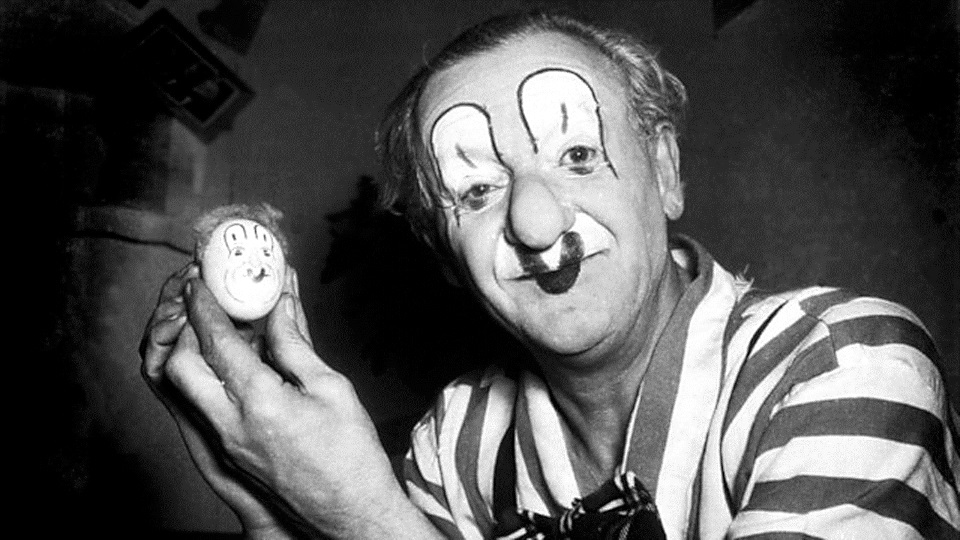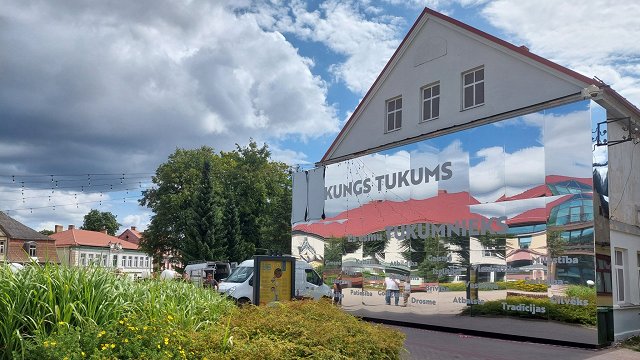But Rothko was not the only one to become master of his art despite humble origins in Daugavpils. The name of Nikolai Poliakoff may not be familiar to many, but that's because he went by another name known to millions of fans: Coco the Clown.
On August 17, the Daugavpils Fortress which houses the Mark Rothko Art Center will honor the famous contemporary of Rothko with a special festival dedicated to Poliakoff/Coco, reports LSM's Russian-language service.
Born in Daugavpils on October 2, 1900 (just three years before Rothko), Poliakoff was, like Rothko, part of the large Jewish community in the area. He is reported to have started busking the streets of the city at the age of five and then In 1908 he performed the classic act of running away to join the circus in Vitebsk (now in neighboring Belarus), where he began to learn his trade in earnest.
After a series of adventures that included being conscripted to both sides during Russia's civil war and escaping dressed as a girl among a troupe of Mongolian entertainers, by 1919 he was performing in Rīga and married his wife, Valentina, with whom he would eventually have six children.
In 1926 he was running his own troupe in Lithuania and later toured Europe, building his reputation all the time as a consummate clown. By the time he appeared for the first time in Manchester, England he received such a positive reception that the public took him to its heart and he spent most of the rest of his life in the United Kingdom, even serving in the British Army during the Second World War.
The name "Coco" became synonymous with clowning in the United Kingdom and indeed many Britons will refer to "Coco the clown" to this day even if they have no real knowledge of who they are talking about.
In his later years he continued to thrill British audiences but also gave his time to promoting road safety among children following a serious accident and in 1963 was awarded the Order of the British Empire, nominally for his work in this field rather than his services to entertainment.
He died in 1974 at Peterborough and was buried in Northamptonshire.
Farida Zaletilo, a curator at the Mark Rothko Art Center told rus.lsm.lv: “I have been collecting my own, one might say, Poliakoff file, which also includes materials from public sources. From 1929, Poliakoff lived in the UK, working in various circuses. In the 1950s and 60s, he was a cult figure; all children grew up knowing Coco the Clown routines.
"In London I found some archival materials related to Poliakoff and learned for example that he often gave use of his brand, his image for free. In the UK, he is still remembered, radio programs are dedicated to him. Poliakoff lived a long life, leaving behind 6 children and a mass of students. His son Michael also became a clown and participated in creating the image of Ronald McDonald, the mascot of McDonald's.”
So August will see Daugavpils performing an ideal tribute to perhaps not its most famous but certainly funniest son: a festival of clowning and street art that it is hoped will take place every two years. During the festival there will be concerts, performances, and various interactive activities for the whole family across the large fortress complex. It is hoped that performers from Lithuania, Estonia, Belarus, Russia, Poland, France, and Belgium will participate.
There will also be a screening of This Is Your Life, a British TV show that surprised well-known figures and led them through their biographies. Poliakoff was featured on the show in 1962.


























